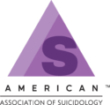Our Programs
The American Association of Suicidology (AAS) provides comprehensive resources to help navigate your journey with suicide and mental health. AAS also offers a national directory of support groups that focus on a variety of survivors of suicide.

Accredited Crisis Centers
The American Association of Suicidology has accredited crisis service organizations for nearly 50 years in the United States and internationally. The accreditation process strives to recognize exemplary crisis service organizations, online emotional support programs, mobile crisis services, and other services supporting individuals in crisis. Achieving accreditation defines an organization’s standard of practice, through the review of several areas including but not limited to administration and organizational structure, service delivery, and services in life threatening crises. Crisis Centers that comprise the National 988 Suicide and Crisis Lifeline often engage with AAS for Accreditation recognition, closely connecting AAS Accreditation services to a critical and growing national support network.
Annual Conference
The American Association of Suicidology Annual Conference, held each spring, is the largest gathering of the Suicidology community; including clinicians, researchers, attempt survivors, crisis service professionals, public health and government officials and more. With attendees from all over the world, the AAS Conference features training and certification days, keynote addresses, poster presentations, paper presentations,hundreds of workshops and panel sessions, an Annual Organizational Meeting, award ceremony, multiple networking opportunities, and an exhibit hall featuring industry leaders, academic and training programs, resources, and community advocates.
Memberships
By becoming an AAS Member you will be among the ranks of the world’s leading suicidologists and suicide prevention experts. AAS offers both individual and Organization membership options. Explore all the benefits and consider which membership meets your unique needs.
Individual Membership
An individual membership provides you with member benefits and simultaneously supports AAS’ mission and vision to promote and elevate public awareness about suicide prevention.
Organizational Membership
An organizational membership provides member benefits and allows an organization to sponsor AAS membership for multiple employees.
Research Program
The American Association of Suicidology research program focuses on advancing the understanding of suicide and suicide prevention through the promotion of scientific research and the dissemination of evidence-supported information. The AAS Research Program has several key objectives, including:
- Supporting and promoting scientific research on suicide, suicidality, and life-threatening behavior
- Disseminating information on suicide prevention and intervention strategies to researchers, academics, and the general public
- Developing and implementing research-supported policies and programs to prevent suicide
- Providing training and resources to researchers, clinicians, and other professionals in the field of suicidology
- Advocating for increased funding and support for suicide prevention research
Store
Our Online Store is the portal to our current offerings, including our current accreditation, training, and certifications. As well as past webinars available at a nominal cost and past slide decks.
Suicide and Life-Threatening Behavior Journal (SLTB)
The AAS Suicide and Life-Threatening Behavior Journal provides the latest research, theories, and intervention methods for suicide and life-threatening behaviors, including research from biological, psychological, and sociological approaches.
Trainings and Certifications
The American Association of Suicidology is a world-leader in the development, implementation, and facilitation of research supported training and certification programs. Courses are evidence-supported to uphold the highest standards of care and equity for those impacted by suicide. Dynamic curricula developed by leading researchers offer an array of advanced clinical training for professionals and introductory-level courses for a variety of sectors and disciplines.
